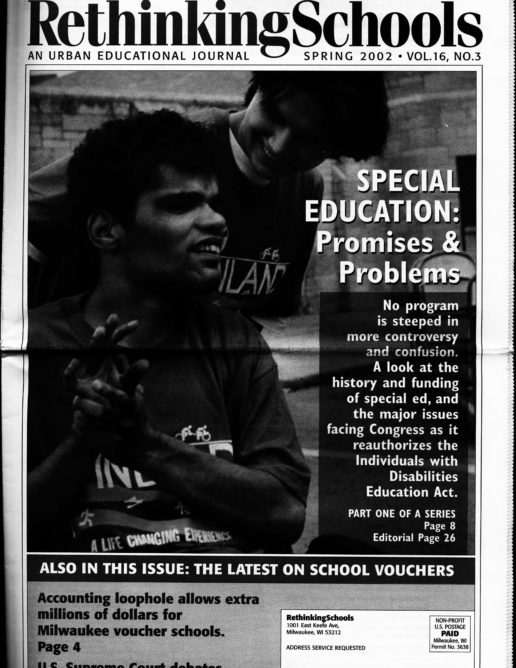A Book About Hope
Hope Was Here, Joan Bauer. (New York: G.P. Putnam’s Sons, 2000). 186 pp. $16.99. Hardcover.
My brother likes to say that I was the surliest waitress in Humboldt County, California, and he may be right. My mother was the short order cook at my father’s fisherman’s bar and café, the Vista Del Mar, and from the time I was tall enough to reach over the sink, I worked at the Vista as well.
Over the years I graduated from dishwasher to waitress. I know waitressing. But I also know blue-collar cooks and customers who don’t fit the stereotypes too often portrayed in films and novels. They were quirky, complicated folks – most of them fishermen, dock, mill, and railroad workers – who came for breakfast or lunch at our café.
In my position as Language Arts Coordinator for Portland Public Schools, where I try hard not to be surly, I have been looking for books that honor blue-collar work. Hope Was Here, an adolescent novel by Joan Bauer, not only respects waitresses, it also demonstrates how high school students can become political activists.
Hope, the main character in Bauer’s novel, raises waitressing to both a religion and an art. She is definitely not surly. She understands how to connect with people through service. She doesn’t dismiss the importance of her work or underestimate the humanity of her customers. There’s no sneering in this novel. At one point she says:
But Bauer’s novel is about more than waitressing, it’s also about a high school girl whose mother and father abandoned her and about young people who work to elect a short order cook as mayor of Mulhoney, Wisconsin. Although there is much talk about creating students who are responsible citizens, too often schools prepare them merely to vote. Not to critique. Not to protest. When a reporter asks Hope why a teenager would spend so much time on a campaign, she answers:
While the campaign is a backdrop, the novel credits students with the ability to think and act. The crooked election gets overturned through direct student action. After spending a night protesting the election with 297 other students, Hope says, “You don’t understand the power you have until you use it…” [167] I would like students to walk out of school with similar sentiments.
This book is hopeful. In an age of despair, we need to offer students models for how to make change.

